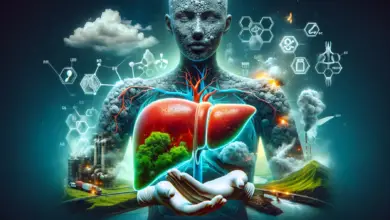The Real Science of Weight Loss: Unlocking the Secrets to a Healthier You
Welcome to the fascinating world of weight loss! If you’ve ever wondered about the science behind shedding those extra pounds, you’re in the right place. In this article, we will explore the real science of weight loss and provide you with valuable insights to help you achieve your health and fitness goals.
The Basics of Weight Loss
Before we dive into the nitty-gritty details, let’s start with the basics. Weight loss occurs when you consume fewer calories than your body needs to function. This creates an energy deficit, and your body starts tapping into its fat stores for fuel.
It’s important to remember that weight loss is not just about shedding pounds on the scale. It’s about improving your overall health, boosting your metabolism, and building sustainable habits.
Now, let’s explore some key factors that play a crucial role in the science of weight loss.
Diet and Nutrition
When it comes to weight loss, your diet plays a significant role. A balanced and nutritious diet provides your body with the essential nutrients it needs while keeping your calorie intake in check.
Focus on consuming a variety of whole foods, including fruits, vegetables, lean proteins, and whole grains. Avoid highly processed foods that are high in added sugars, unhealthy fats, and empty calories.
Additionally, portion control is essential. Be mindful of your serving sizes and listen to your body’s hunger and fullness cues.
Remember, a healthy diet is not about deprivation; it’s about nourishing your body and making sustainable choices.
Physical Activity
Regular physical activity is another crucial component of weight loss. Exercise not only burns calories but also helps build lean muscle mass, which increases your metabolism.
Engage in a combination of cardiovascular exercises, such as running or cycling, and strength training exercises, like weightlifting or yoga. Aim for at least 150 minutes of moderate-intensity aerobic activity or 75 minutes of vigorous-intensity aerobic activity per week.
Find activities you enjoy, as this will increase your chances of sticking to your exercise routine in the long term. Remember, consistency is key.
Sleep and Stress Management
Many people overlook the importance of quality sleep and stress management in their weight loss journey. Lack of sleep and chronic stress can disrupt your hormone levels, leading to increased cravings and weight gain.
Make sleep a priority by establishing a consistent sleep schedule and creating a relaxing bedtime routine. Aim for 7-9 hours of quality sleep each night.
Additionally, find healthy ways to manage stress, such as practicing mindfulness, engaging in hobbies, or seeking support from loved ones. Stress eating can sabotage your weight loss efforts, so it’s crucial to find alternative coping mechanisms.
The Role of Genetics
While diet, exercise, sleep, and stress management are vital for weight loss, it’s essential to acknowledge that genetics also play a role. Some people may have a genetic predisposition to obesity or a slower metabolism.
However, this doesn’t mean that genetics determine your destiny. By adopting a healthy lifestyle and making sustainable choices, you can still achieve your weight loss goals.
Focus on what you can control, such as your eating habits and physical activity levels, and seek guidance from healthcare professionals or registered dietitians for personalized advice.
Tracking Progress and Setting Realistic Goals
Tracking your progress is essential to stay motivated and make adjustments along the way. Keep a food journal, use a fitness tracker, or take regular measurements to monitor your progress.
Setting realistic goals is also crucial for long-term success. Aim for a gradual and sustainable weight loss of 1-2 pounds per week. Rapid weight loss can be unsustainable and may lead to muscle loss or nutrient deficiencies.
Celebrate non-scale victories, such as increased energy levels, improved mood, or fitting into smaller clothing sizes. Remember, weight loss is a journey, and every small step counts.
Conclusion
The real science of weight loss is a multifaceted journey that involves a combination of healthy eating, regular physical activity, quality sleep, stress management, and personalized approaches. By understanding the underlying principles and making sustainable choices, you can achieve your weight loss goals and embark on a path to a healthier and happier you.
Remember, consult with healthcare professionals or registered dietitians for personalized advice that suits your unique needs. Start your weight loss journey today and unlock the secrets to a healthier you!





